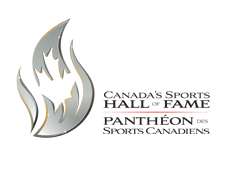Home | Military and Sport | Sport Veterans
John Loaring
PreviousNext
It is unusual for inexperience, youth and naivety to ever win in sport. Of course, if these virtues are balanced by extreme capability, iron competitiveness and sheer will then there is always a chance. And this paradox was never better exemplified than in the career of the sprint hurdler, John "Johnny" Wilfred Loaring.
John Loaring was used to overcoming adversity. It was in his make-up. As a young child, Loaring was stricken with a rheumatic fever that was so severe, doctors told him that he would never run again. Within a year, the ever-resourceful Loaring was begging his father to let him 'run around the block'. Within five years, he was such a dominant high school athlete he won two events - the 120-yard and 440-yard hurdles at the Intra-Empire Schoolboy Games in Australia. Within another two years, Loaring was in Berlin but this time he was competing in the greatest championships of all, the 1936 Olympic Games.
Unfortunately for Loaring, he had to overcome a number of disadvantages. He was the youngest competitor, his preparations were significantly hampered and he had to compete in nine races in only a few days. Loaring applied his focused and courageous calm and surprised the world finishing in second place in the 400m hurdles, fourth place in the flat 400m, and fourth as part of the relay team that suffered a clear foul. In fact, the totalitarian German media were so impressed they named Loaring the 'toughest' competitor of those Olympic Games. By 1938 Loaring won three gold medals at the British Empire Games and was clearly set for global dominance, until the Second World War broke out a year later.
Serving in the Navy during the Second World War, Loaring displayed the same focused calm as he had on the track, irrespective of adversity. It was Loaring who, in September 1940, resuscitated three children who were assumed to be dead after their liner was torpedoed. It was Loaring who, in May 1941, survived for hours clinging to the wreckage of his ship the Fiji in the Battle of Crete. It was Loaring who suffered severe oil poisoning from this episode but within the year had narrowly missed breaking the flat 400m world-record in a track meet in England designed to boost morale. In short, John Loaring's sporting and military story was one of perseverance, indomitable will and exceptional talent.
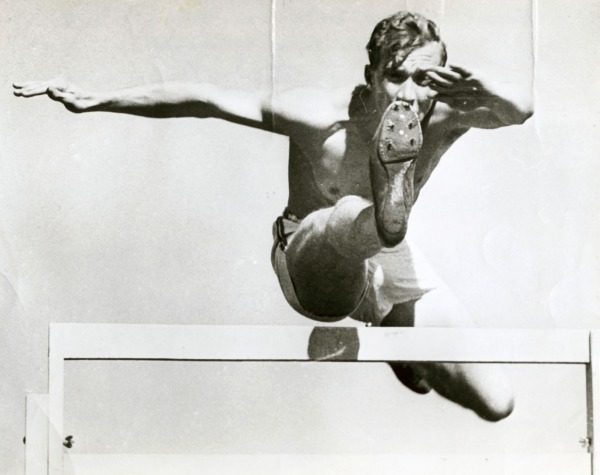
The first time John Loaring ever competed in the 400-m hurdle event was at the Canadian Olympic trials for the 1936 Olympic Games. A few months later, exceeding all expectations, he won the Olympic Silver medal, showing his competitive spirit and his will to win. The athletes who came to these Games competed in friendship but less than three years later they were at War.
Collection: Canada's Sports Hall of Fame
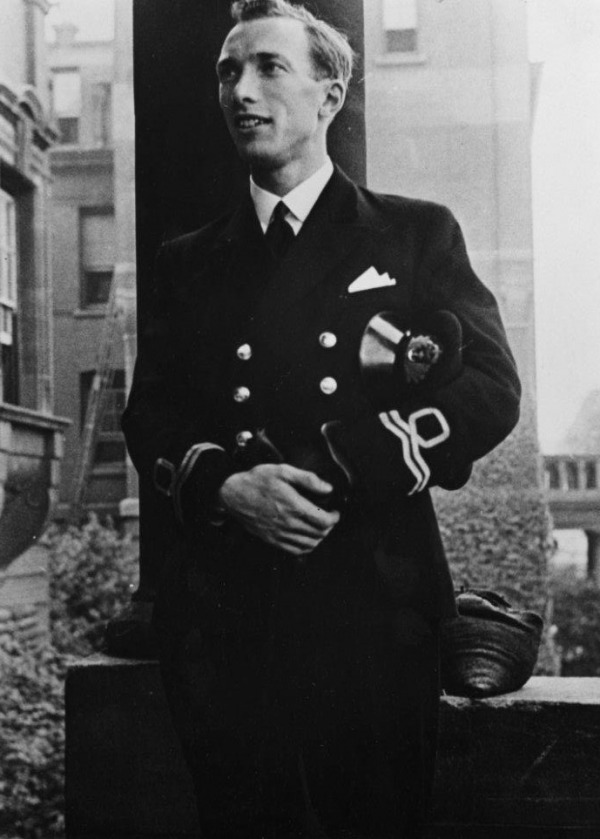
Loaring served as a radar officer on board the HMS Fiji when it was sunk during the Battle of Crete in 1941. He survived over 12 hours in the water and later reported: "I have rescued; I have been torpedoed and not sunk, and I have been dive-bombed and sunk - which qualifies me somewhat to describe the scene of a sinking at sea."
Collection: Private collections G.R. John Loaring
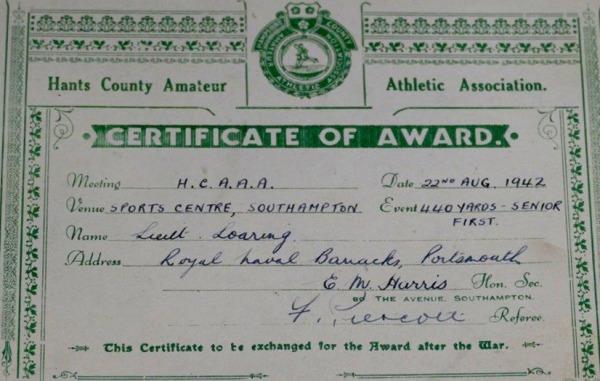
Despite suffering from oil poisoning from his prolonged exposure in the water after the boat he was on was sunk, Loaring went on to compete and win at track meets in England. He received a letter of congratulations from the Amateur Athletic Union for his efforts at keeping athletics going in England, recognizing his resilience and excellence.
Collection: Private collections G.R. John Loaring
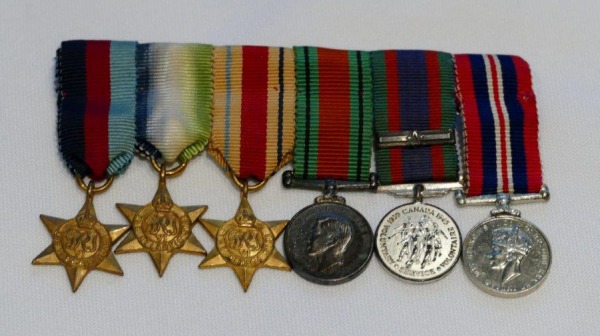
John Loaring's medal bar attests to his exemplary military service. The medals include the 1939-1945 Star, the Atlantic Star, the Africa Star, the Defence Medal, the Canadian Volunteer Service Medal and the 1939-1945 War Medal.
Collection: Private collections G.R. John Loaring
Previous Next
